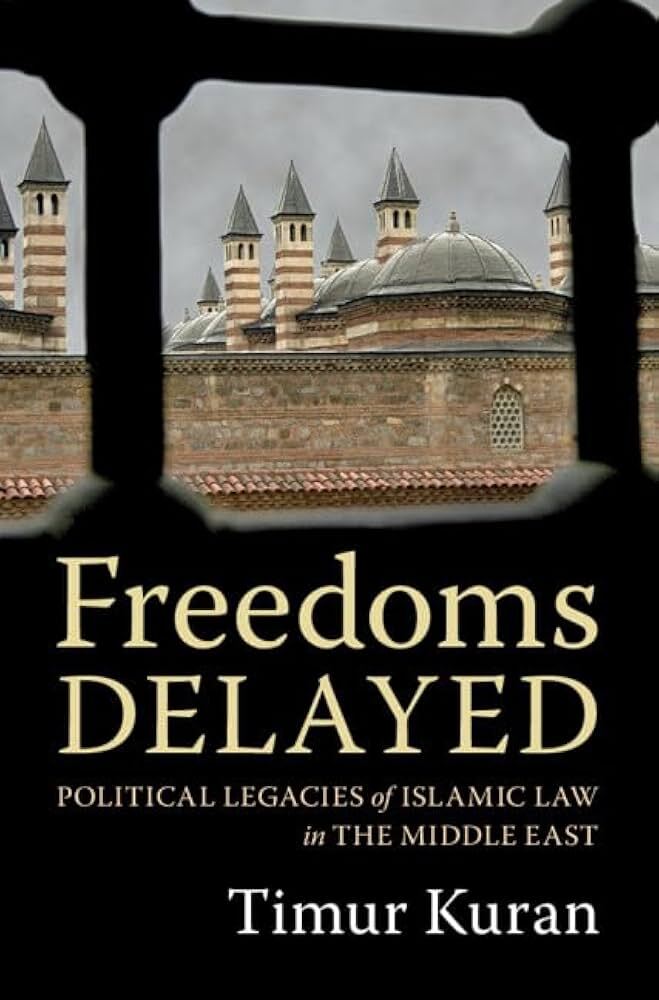Kuran of Duke University has established himself as one of the very most creative historians of Middle Eastern Muslims. This book makes up the second volume of a two-part study of the reasons for Middle Eastern political underdevelopment; the first, on economic underdevelopment, appeared in 2011 as The Long Divergence: How Islamic Law Held Back the Middle East. In both parts, Kuran develops original and convincing ideas with an emphasis on the Shari‘a (Islamic law). As he puts it, “Islamic law remains deeply rooted in the region’s politics Patterns of civic engagement, understandings of religious liberties, distributions of political power, and relative economic capabilities all bear influences of the Middle East’s legal history.”
Kuran summarizes his main message thus: “Though the region has achieved vast transformations since the 1800s, insufficient experience holds back grassroots politics. That legacy is rooted in Islamic institutions. Meanwhile, personal freedoms remain limited because of inabilities, also grounded in legal history, to assert and defend individual rights.” Looking to the future, he is pessimistic about the short term (because liberalizers “cannot organize effectively”) and optimistic about the longer term (because “modernizing Islam’s interpretation is by no means impossible”).
Kuran blames Middle Eastern travails in large part on an institution that normally attracts little notice: the waqf (mortmain). He contrasts it unfavorably to the European corporation and concludes that the waqf’s organizational features “constituted a key reason why, as the West developed political checks and balances, no such tendency emerged in the Middle East.”
In one of his more original arguments, Kuran holds that the imposition of repressive secularism led to the outburst of fanatic Islamism. “Through coercion, secularists gained freedoms to pursue reforms with minimal resistance from traditional Islamic communities. But the relief proved temporary. It set the conditions for a surge of assertive Islamism and the return of constraints on secular lifestyles.”
As this too-brief overview suggests, Freedoms Delayed contains a wealth of insightful and convincing analysis.




